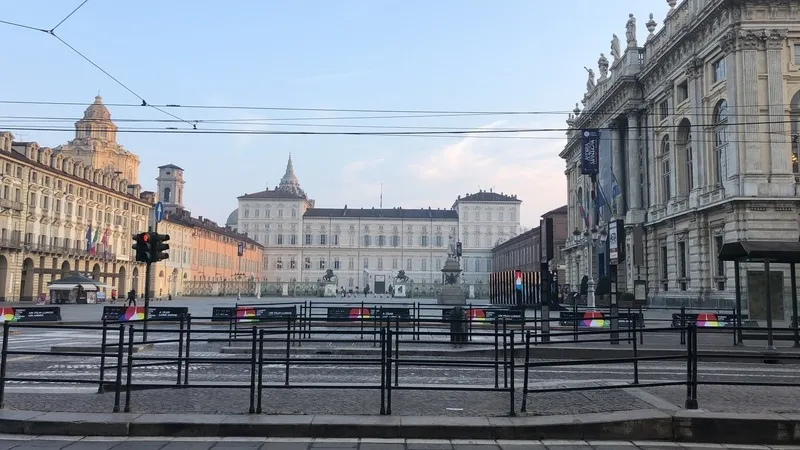A new report by the Metropolitan Washington Council of Governments National Capital Region Transportation Planning Board (MWCOG) finds that support for a toll managed lanes network grows somewhat the more it is discussed, whereas a vehicle miles travelled charge loses support after discussion. Among 300 people who participated in five-hour moderated small group discussions of alternative ways of dealing with traffic congestion in the Washington DC metro area, toll express lanes on all major highways receiv
September 16, 2013
Read time: 3 mins
A new report by the Metropolitan Washington Council of Governments National Capital Region Transportation Planning Board (MWCOG) finds that support for a toll managed lanes network grows somewhat the more it is discussed, whereas a vehicle miles travelled charge loses support after discussion.
Among 300 people who participated in five-hour moderated small group discussions of alternative ways of dealing with traffic congestion in the Washington DC metro area, toll express lanes on all major highways received 60 per cent public support versus 10 per cent for a vehicle miles charge.
A third alternative, a congestion charge for entry to central zones had 50 per cent support and 34 per cent opposition. Even supporters thought it wouldn't help much to relieve congestion. Vehicle miles charges were seen by the vast majority as intrusive, ineffectual against congestion and difficult to enforce.
The report says there is wide scepticism about the ability of pricing to reduce traffic and about government’s ability to deliver on promises. The ability of a scheme to raise new revenue is not perceived as a positive since it is a majority view that governments have more than enough money already, but misspend it.
A widespread view that motorists only drive when they have gets in the way of acceptance of congestion pricing and the conclusion is drawn that pricing won't change motorist behaviour.
Toll express lanes, while not seen as a comprehensive solution, are popular for the choice and predictability of travel offered by a managed lanes toll network.
The opportunity toll express lanes offer to improve bus transit service is regarded as a major plus.
The study also found that a vast majority of people agree that congestion is a critical problem. 91 per cent of participants ‘agreed’ or ‘strongly agreed’ that congestion is a critical problem facing the region.
Participants talked a lot about pressures on the road system, saying they feel crowded by too many people and too much development, and that too many people are trying to use the roads.
Scepticism about government competence appears to be root of public unresponsiveness to calls for more revenue for transportation.
The addition of a bus rapid transit (BRT) system or other high-quality transit alternative was also an attractive feature of the scenario. Of all the transportation improvements discussed at the forums, BRT seemed to represent something truly new to many participants and attractive.
Among 300 people who participated in five-hour moderated small group discussions of alternative ways of dealing with traffic congestion in the Washington DC metro area, toll express lanes on all major highways received 60 per cent public support versus 10 per cent for a vehicle miles charge.
A third alternative, a congestion charge for entry to central zones had 50 per cent support and 34 per cent opposition. Even supporters thought it wouldn't help much to relieve congestion. Vehicle miles charges were seen by the vast majority as intrusive, ineffectual against congestion and difficult to enforce.
The report says there is wide scepticism about the ability of pricing to reduce traffic and about government’s ability to deliver on promises. The ability of a scheme to raise new revenue is not perceived as a positive since it is a majority view that governments have more than enough money already, but misspend it.
A widespread view that motorists only drive when they have gets in the way of acceptance of congestion pricing and the conclusion is drawn that pricing won't change motorist behaviour.
Toll express lanes, while not seen as a comprehensive solution, are popular for the choice and predictability of travel offered by a managed lanes toll network.
The opportunity toll express lanes offer to improve bus transit service is regarded as a major plus.
The study also found that a vast majority of people agree that congestion is a critical problem. 91 per cent of participants ‘agreed’ or ‘strongly agreed’ that congestion is a critical problem facing the region.
Participants talked a lot about pressures on the road system, saying they feel crowded by too many people and too much development, and that too many people are trying to use the roads.
Scepticism about government competence appears to be root of public unresponsiveness to calls for more revenue for transportation.
The addition of a bus rapid transit (BRT) system or other high-quality transit alternative was also an attractive feature of the scenario. Of all the transportation improvements discussed at the forums, BRT seemed to represent something truly new to many participants and attractive.









